Politics
You can’t remain analogue, manual mode, INEC Chairman tells staff
Published
4 years agoon
By
Olu Emmanuel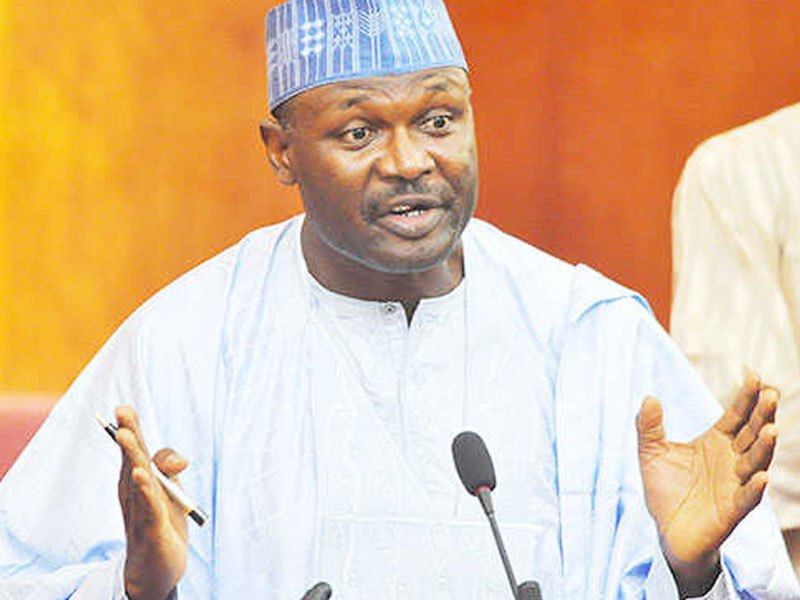
Prof. Mahmood Yakubu, the Chairman, Independent National Electoral Commission (INEC) says no staff of the commission should remain analogue and manual mode but all should adapt to technological innovations and creativity.
Yakubu gave the charge on Monday in Lagos at the opening ceremony of a-four-day capacity building for INEC’s Heads of Voter Education and Publicity (VEP) and Public Affairs Officers (PAOs) in the southern states.
The National Daily reports that the workshop tagged “Capacity Building on Effective Communication for Continuous Voter Education and New Polling Units for INEC’s Head of Voter Education and Public Affairs Officers’’, was organised by the United Nations Development Programme (UNDP).
Yakubu, who was represented Mr Festus Okoye, National Commissioner and Chairman Information and Voter Education Committee, said that staff of the commission must adapt quickly to the new technological realities aimed at deepening electoral process.
The INEC chairman said that the commission was dealing with complex issues, diverse constituencies, intense fight for power and dangerous geographical terrains, hence the need for innovations and creativities.
Yakubu said: “Staff for the commission must adapt quickly to the new technological reality occasioned by advances in technology, the global health pandemic, challenge of best practices in election administration and management.
“The staff of the commission in general and information managers in particular cannot afford to remain analogue and on manual mode when a new generation of Nigerians is migrating steadily to the digital world.
“We must at all times strive to show the way in moving the country toward a direction that will lead to better elections, even as the commission has demonstrated capacity, creativity and innovation in times of great changes, difficulties and challenges.”
According to him, at the height of the pandemic and when many advanced countries suspended or called off their elections, INEC developed an electoral continuity plan and strategy and conducted two constitutionally-circumscribed governorship elections.
He said that INEC policy on conducting elections in the context of COVID-19 pandemic received global and international acclaim and became a standard for so many African countries.
Yakubu said that within the same period, the commission designed a Candidate Nomination Portal through which political parties uploaded the personal particulars and list of their nominated candidates.
He said that the commission also developed a portal for domestic election observers and the media through which they applied for accreditation.
“Within the same period too, the commission developed and deployed INEC Result Viewing Portal (IREV) through which the commission uploaded polling unit results for public view.
“These are innovations and developments all HODs, VEP and PAOs must be abreast of and relay to the public at necessary junctures,” Yakubu said.
He urged all HODs VEP and PAOs to read widely, broadly and be on top of information as well as knowing how to work on different social media platforms so as not to be impediments to INEC’s progress.
The INEC chairman said that the CVR online pre-registration exercise as well as biometric and physical capturing exercises which commenced on June 28 and July 26 respectively nation-wide, had seen more Nigerians embrace technologies.
“The commission is introducing technology in the country’s electoral process to aid efficiency and make the conduct of elections less cumbersome, more transparent and more engaging.
“Considering the complex geographical terrain of the country, the commission believes that deepening the use of technology will assist it organise elections efficiently and declare results in record time,” he said..
According to him, the commission believes that deepening the use of technology in electoral process “will limit prospects of pernicious and malicious interference in the electoral process and election outcomes”.
Yakubu said that the duality of quality control and due diligence would eliminate as much as possible, the anxiety of moving results from the polling units to the collation centres.
“Technology will also enhance and domicile the processes of the commission within the commission and enhance monitoring and compliance.
“Within the context of a global pandemic, technology is the oxygen for electoral continuity.
“The commission is committed to ensuring that all Nigerians, with no legal disability, who desire to vote, must vote no matter their station in spite of their location.
“Technology holds the key to the actualisation of this goal. The commission will, therefore, call-in aid, technology to obviate some of the challenges of manual processes and procedures,” Yakubu said.
He expressed INEC’s determination to enhance the power and value of vote and enable eligible Nigerians to vote in a safe and peaceful environment.
The INEC chairman said that the commission would continue to deepen partnership with the judiciary and other stakeholders in its efforts to improve on the integrity of elections.
He solicited the understanding of the judiciary to interpret the constitution and the law more purposefully and enhance, guarantee, protect and secure the power, prestige and independence of INEC.
Yakubu commended the UNDP and the Norwegian Ministry of Foreign Affairs for making the capacity building programme possible.
Also speaking, Mr Nick Dazang, Director of Voter Education and Publicity, said that voter registration remained crucial to INEC’s work and mandate to organise and conduct elections.
Dazang said that without a credible register, election could not be credible.
He noted that since 2007, the commission had begun using technology to register voters with the introduction of Direct Data Capturing Machine.
He said that staff must the brought to speed in all novel technologies.
Earlier in his welcome address, Mr Sam Olumekun, the INEC Resident Electoral Commissioner, Lagos State, said that the workshop was apt now that the commission had embarked on dual online pre-registration and physical biometric capturing.
Olumekun, who was represented by Mrs Ijeoma Okey-Igbokwe, Head of Department, General Administration and Procurement, said that the workshop was an evidence of INEC’s determination to improve on its performance in the conduct of flawless election in 2023.
Trending
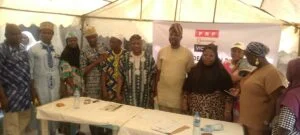
 Politics5 days ago
Politics5 days agoPRP conducts ward, LG congresses in Lagos, elects new executives

 Business1 week ago
Business1 week agoNew tax law: No law allows arbitrary bank debits, says Oyedele

 News5 days ago
News5 days agoHeart of Gold Empowerment Outreach bolsters 30 indigent’s economic status in Edo State
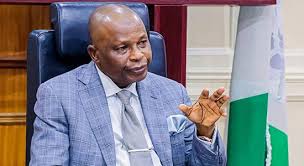
 Latest7 days ago
Latest7 days agoSEARP decries delay in enforcing judgment on N6tn NDDC misappropriation scandal, threatens suit against AGF Fagbemi
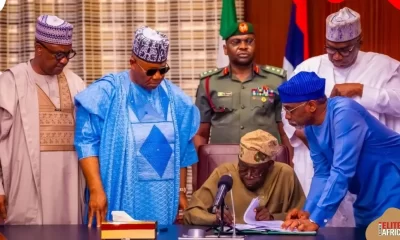
 Business7 days ago
Business7 days agoFG to lose N1.4trn annually as corporate tax cut takes effect in 2026
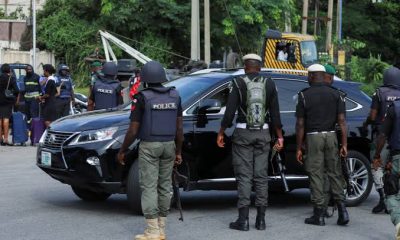
 Crime6 days ago
Crime6 days agoPolice To Resume Tinted Glass Enforcement
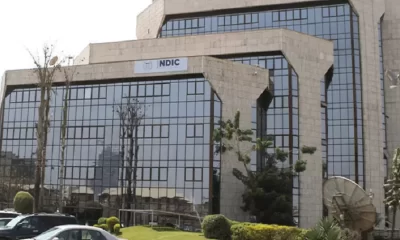
 Business6 days ago
Business6 days agoNDIC begins liquidation of ASO Savings, Union Homes, moves to pay insured deposits

 Latest6 days ago
Latest6 days agoAkpabio denies health scare, dismisses reports of collapse on London trip

